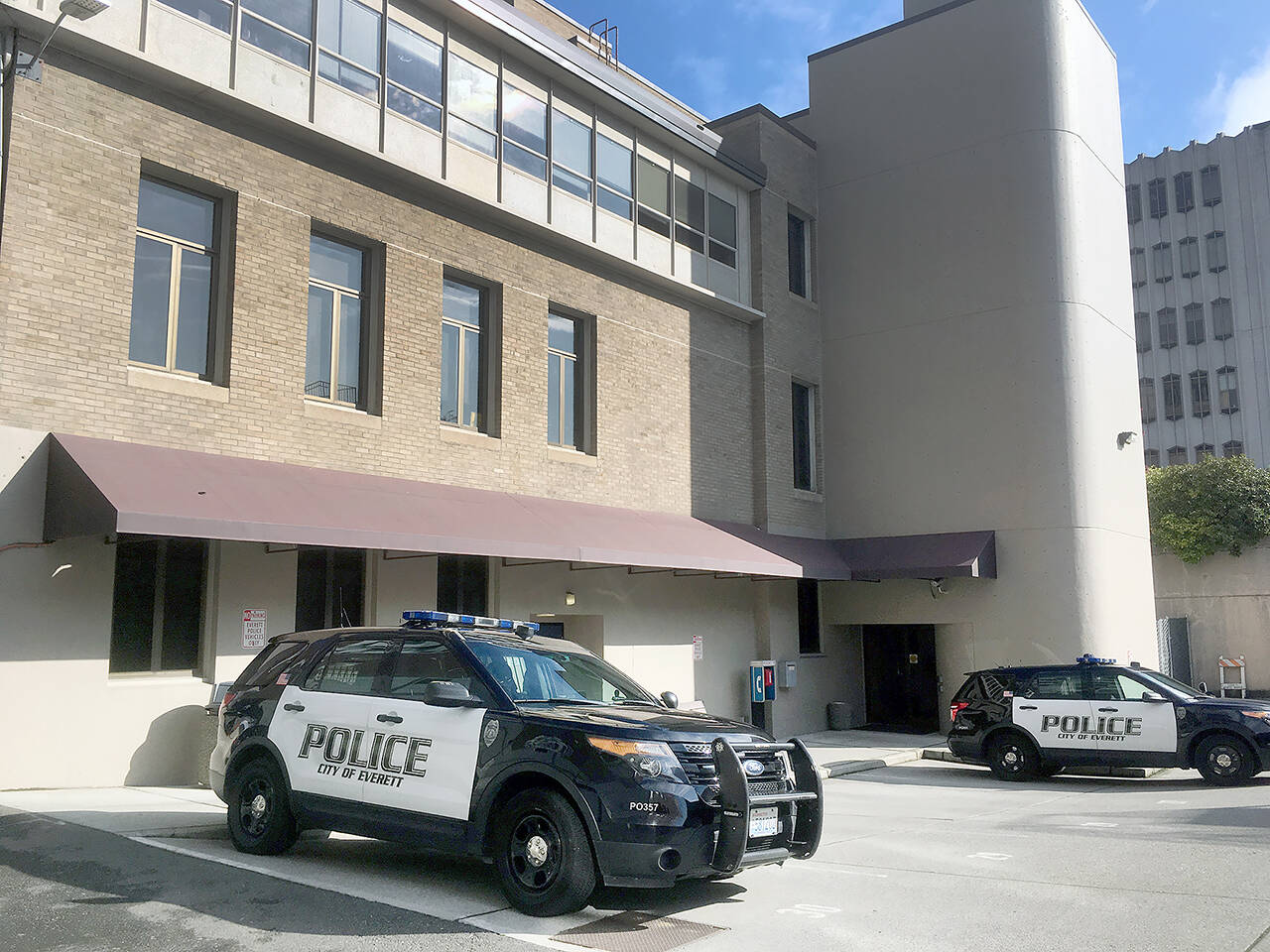EVERETT — A gun buyback program could be one of the near-term solutions to a recent uptick in violent crime in and around Everett.
Court and legislation changes — that some city leaders argue are necessary — along with addressing a growing fentanyl crisis could take longer.
“This isn’t a left issue, a right issue. This is a community issue,” Deputy Mayor Nick Harper told the Everett City Council on Wednesday. “None of these are going to be easy challenges. They’re going to be politically charged.”
The city also announced it was joining a Regional Violent Crime Reduction Unit, along with the Snohomish County Sheriff’s Office, the Lynnwood Police Department, the Snohomish County Prosecutor’s Office and the FBI. The group is working to address the rise in violent crime, especially when a gun is involved.
Assaults, murders and sex offenses are up from recent lows, but not as high as peaks in 2016 and 2017, Everett Police Chief Dan Templeman told the council. That, combined with the number of shots fired, drive-by shootings and stolen firearms reports the city gets and the frequency officers contact people who are armed, has him worried.
“I, as the chief, am very, very concerned about the number of shots fired calls, the number of drive-by shooting calls,” Templeman said. “This should be a concern throughout the entire state of Washington.”
Through June of this year, there were 835 violent crimes reported, on pace for nearly 1,700 reports by the end of the year. The previous year-end high was 1,964 in 2016, according to police data.
Also through June, the city was on pace for just over 100 reports of shots fired this year. The previous high was in 2017, when there were 81 reports of shots fired and 24 drive-by shootings.
The city tracks reports of stolen firearms. Through July, 74 guns were stolen out of homes and 36 from vehicles. That’s on pace to match or surpass the previous high of 171 stolen firearms in 2017, Templeman said.
Everett offers gun trigger locks for free to residents and encourages safe storage. A state law holds a firearm owner responsible if they knew, or reasonably should have known, someone prohibited from having a gun, gains access to owner’s weapon.
But those measures haven’t been enough to curb firearm offenses. Now the city is considering buying unwanted guns to get them off the streets.
On two days earlier this year Kirkland offered “Guns for Gift Cards.” The city collected 151 firearms in exchange for Visa gift cards worth $25 to $250, Kirkland Police Department spokesperson Sue Romero said. Money for the gift cards came from a sales tax increase for public safety that voters approved in 2018.
“It’s true, we got down to the very last gift card at the last event, which is why we closed it early, but all the participants who wanted gift cards did receive them in exchange for firearms,” Romero said in an email. “We also had participants who relinquished guns but turned down the gifts cards. In fact, a couple of participants were not Kirkland residents, they just wanted to give up the firearms they had.”
Councilmembers expressed support for Everett doing something similar.
Meanwhile Everett hopes to fill its police ranks. The department has hired 22 officers this year and has 24 vacant positions, Templeman said. But that number is misleading because some of them are in field training or in the academy, on military leave or on long-term leave for injuries sustained on the job, he said.
Further out, he said the state’s law enforcement agencies are facing a public relations battle as people switch careers.
More officers will lead to better staffing for the special units that respond to gangs and violent crimes, Templeman said.
Crimes against society, a term that covers drug offenses, theft and responding to calls involving people in mental crisis, were lower than the high set four years ago of 1,858. But a major factor in the decline was a court decision that ended simple drug possession arrests, Templeman said.
The city’s social worker and police officer team had over 1,700 contacts through July this year. A dozen were referred to the Law Enforcement Assisted Diversion program, 18 clients entered inpatient treatment, 26 people went to the Snohomish County Diversion Center, 31 clients were housed in motels and 35 people in the Pallet Shelter village.
The enforcement part of the city’s Community Outreach and Enforcement Team led to 80 arrests, Templeman said.
“It’s not that we are not offering and not getting them in touch with service providers,” Mayor Cassie Franklin said of the total number of contacts the team made. “They are simply refusing services. It’s a very service-resistant population we are working with right now.”
Templeman said a mix of advocacy and staffing can help address crimes against society.
Ben Watanabe: 425-339-3037; bwatanabe@heraldnet.com; Twitter: @benwatanabe.
Talk to us
> Give us your news tips.
> Send us a letter to the editor.
> More Herald contact information.

























